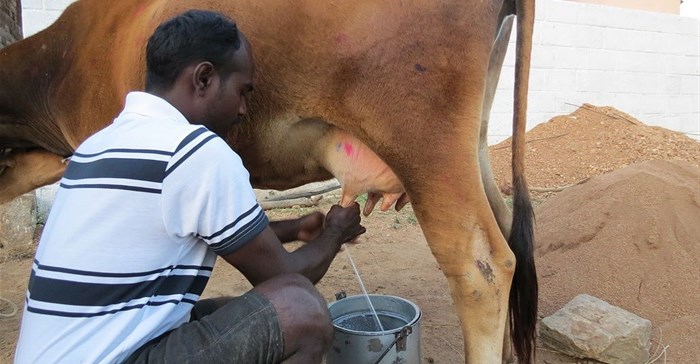Banks may have to deal with an increase in bad debts from farmers should the drought continue well into next year. With crop production expected to fall due to the weather, profit margins could come under pressure, making it difficult for some farmers to repay loans. In the 2014/15 season, maize production had already dropped to 9.9-million tonnes from 14.2-million tonnes.
Nico Groenewald, head of agribusiness SA at Standard Bank, says early indications in the overall agricultural sector show that the area farmers intend to plant have shrunk about 4% to 2.5-million hectares. Unless it rained soon, this area would shrink further.
Absa agricultural economists Karabo Takadi and Wessel Lemmer write in their 2016 outlook, presented yesterday, that the drought has resulted in crop damages, and because SA is the largest maize producer and exporter in Southern Africa, neighbouring countries will be affected.
Grain SA economist Wandile Sihlobo says it is estimated that there could be R12bn of losses in the maize sector in the 2014-15 production year. But Sihlobo is quick to caution that "SA is not in a food crisis" and there is food available until April next year.
Total outstanding loans
So far, the majority of the big South African banks exposed to the agricultural sector maintain they have not seen an escalation of bad debts in the agricultural sector. Major banks have shied away from disclosing how much exposure they have to the agricultural sector, but industry economists estimate total outstanding loans at about R116bn.
The state-owned Land Bank has exposure of close to R40bn. Land Bank CEO Tshokolo Petrus Nchocho says his bank has been closely monitoring the distress signals in order to intervene and mitigate the risks. He adds that farmers "who have insured themselves against the vagaries of nature will be duly protected against their borrowings".
Insurance may not be enough, but it will help
However, Ernst Janovsky, head of the Centre of Excellence at Absa's Agribusiness, says crop insurance in SA is very small. "Only about 10% of the crop is insured for drought," says Janovsky, adding that SA is one of those few advanced farming countries in which the state does not subsidise the premiums paid by farmers for crop insurance.
Dawie Maree, head of information and marketing at FNB Agriculture, says FNB's loan book is still sound, but clients could face problems if conditions persist. "There is a perception that bad debt levels are rising. However, they are not yet at alarming levels. Furthermore, the drought alone cannot be blamed for the possible rise in bad debt levels," says Maree. He points out that some commercial livestock farmers sell some of their stock to ensure they have enough grazing available.
On insurance issues, Santam agribusiness head Gerhard Diedericks says the summer rains in the affected areas will bring hail conditions and only those farmers who have the necessary insurance will be covered. "It is important that farmers and producers realise that sufficient cover is a long-term decision and not something that should be decided on year-on-year." He says despite the drought affecting vast areas of the north of the country, Santam has not received any drought-related claims because farmers have not yet been able to plant crops.
Farmers in drought-prone areas could mitigate their risks in the coming summer months by adopting cultivation techniques "that improve water infiltration, restricting evaporation losses, controlling weeds to ensure that available water is used only by crops", Diedericks says.
Once lightning strikes
"We are the largest asset insurer in the sector and one of the top three players in the crop market. Essentially, this boils down to insuring more than a third of the sector," he says.
Andries Wiese, manager of market intelligence and marketing at Mutual & Federal Agri, says over and above the normal storm claims, they have not yet received any excessive claims. One of the firm's concerns is the outbreak of "fires once lightning strikes". "One has to accept and appreciate that the drought has very real financial implications for all involved and our expectation is that farmers will be looking at all ways of managing their financial positions," says Wiese.
"This could include, among other things, the re-evaluating of their insurance portfolios, less capital outlay and expansion (and obviously less to insure) and, in worst- case scenarios, cancelling their insurance in total."
Source: Business Day













































